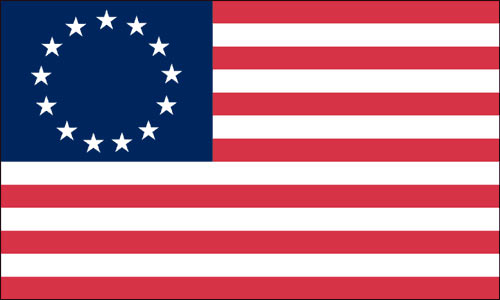
I often wonder when the next civil war will be in this country. It is not really a matter of if in my mind, but when. The original civil war was fought over social and economic issues that were incredibly important to the nation at the time. As we continue into this brave new world of terrorism, super-sized government control and technology that is advancing faster than our ability to make moral decisions, it is important to remember what is at stake. In this two-part post I will examine the USA PATRIOT Act, race relations in America today and other modern issues. My hope is to aid the reader in deciding an answer to this question, "Are we living in the the second great antebellum period of United States history?"
Freedom was one of the largest reasons for the American Revolution and had roots in English writers such as John Locke and Thomas Pain. These men, and the revolutionary thinkers who came after, believed that the head of government should exist in order to protect and promote the safety, happiness and property of the people. Property in this sense was not just land, but possessions, investments and interests. When British colonists felt thoroughly opressed by taxation and felt ignored by a lack of their economic interests being represented in England, they decided to separate. This separation has easily be seen as more of a succession from England rather than an internal revolution. This sentiment was again seen during what I refer to as the first antebellum period in the US.
Causes for the civil war usually are typically whittled down to the issue of slavery and because of this emphasis, it is useful to examine the issue from a historian's viewpoint. As a history teacher and as a teacher who has been in several districts for a few years, it still amazes me how little students in public schools know about the issue of slavery in America and how they know nothing at all of slavery elsewhere. While, I won't fully examine the issue in this post, some thought must be given in order to understand the issue. Generally, the consensus tends to be that evil white men enslaved innocent black men, women and children for their own economic gain. This is an extremely racist view, not only because it assumes that white men were inherently evil and ambitious imperialists, but also because it assumes that Africans were like children, lacking in intelligence, martial defense and civilized resistance. However, racism was the key idea when it came to slavery and the idea that more advanced civilizations should conquer less civilized peoples was a strong belief in Europe for centuries.
It is a common misconception, especially with students, that 1)slavery has never existed before white Europeans oppressed black Africans and 2)the abolitionist, free North had no ill will toward freed Africans. This couldn't be further from the truth. Slavery has existed in several forms for thousands of years, including ancient civilizations such as Greece and Egypt. It never blinked out of existence throughout human history and still continues in various forms today. Secondly, racism was a big part of being an American, even in the North. Northerners generally believed that it was not only immoral, but not economically necessary. The North was using a totally different economic system in which they had paid employees manufacturing products, not slaves. In reality, slavery was always an economic issue more than it was a moral issue. Unfortunately, students seem to miss this important concept.
The slavery issue eventually came down to Federal power versus State power. Keep in mind that the US was a series of independent colonies with their own government and power structure. These states were essentially countries in their own right unified under a central government in order to have unified military protection from foreign interests. At the time, the moral and economic debate of slavery transformed into a political power issue of who should decide whether a state would be free or slave. The Federal government, especially under the administration of the recent presidents leading up to and including Lincoln, were enacting policies that clearly demonstrated how the national interest trumped the state interest by introducing new, free territories into the nation. The South, feeling as tohugh its policial power was crippled and its economic interests were being ignored, decided to go the route of the US and succeed. Essentially the civil war can be seen as an attempt at what I will call the Confederate Revolution of North America. This revolution, unlike our own, ultimately failed. Slavery was abolished by Lincoln crippling the South's economy and military.
Look for comparisons of these events to today's America in "The Civil War and Today's America Part 2."

I do believe that you are correct when you say that slavery exited
ReplyDeleteway before the civil war. It seems to me that in todays world, slavery can be as simple as one person who fares them self better then another tries to enslave one who is less confident, to do their deeds. Slavery exits in many forms. You mention that in the future we may enter in a civil war.
I believe that we do go against each other already. It may not be titled a civil war, but it certainly seems that we go against each other at work, friendships, relationships, company's, goverment, etc. It's not one state against the other, it's more like one against the other.